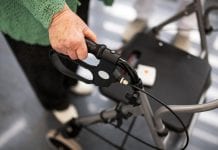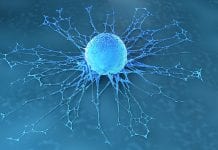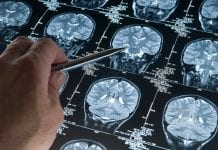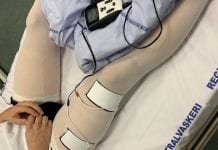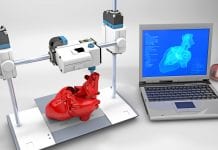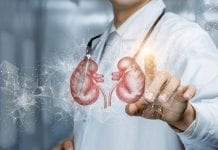New algorithm can improve diagnosis and treatment of sleep disorders
Scientists have developed an artificial intelligence (AI) algorithm to improve the diagnosis, treatment, and understanding of sleep disorders.
Researchers from the University of Copenhagen's Department...
Online Exercise programme could prevent falls in elderly users
A randomised controlled trial of an internet-based Lifestyle-integrated Functional Exercise programme (iLiFE) to prevent falls in community dwelling older fallers.
Prevention of falls is a...
The world’s first automated hydration tracking system
Rebecca Taylor, CEO and Founder of Aquarate, explains the importance of hydration and introduces the new Hydracare system.
Hydration is a key aspect of elderly...
A step closer to stem cell therapy for Type 1 diabetes treatment
Researchers have made a major breakthrough in the process of developing a stem cell therapy for the treatment of Type 1 diabetes.
Scientists from the...
Improving healthcare facilities with Location-Based Services
Real Time Location Services provider Quuppa explores the potential impact of adopting location tracking technologies in clinical settings.
COVID-19 has placed global healthcare systems under...
£8m project will create robots to spot and remove cancer tumours
A new £8m project has been launched to develop robotic technology that can detect and remove cancer tumours.
Led by scientists at the University of...
NHS Innovation Accelerator drives technological development
The award-winning NHS Innovation Accelerator is providing support for promising innovators to enable them to scale up across the English healthcare system.
Since its launch...
App can help pregnant women achieve healthy weight gain
Researchers in Sweden have developed an app to help pregnant women achieve a healthy weight gain and lead a healthy lifestyle.
The app, titled...
Cutting the fuel supply to cells can prevent cancer spreading
Halting the energy supply to certain cells can help to stop the spread of cancer, researchers have discovered.
A study by scientists from the Translational...
IVF clinic group to use AI to non-invasively assess embryos
A group of IVF clinics will be among the first in Europe to use artificial intelligence (AI) to non-invasively assess embryos.
IVF Life Group, a...
Blood oxygen levels could explain memory loss in Alzheimer’s disease
The results of a world-first study that recorded blood oxygen levels could explain why memory loss is a symptom of Alzheimer’s disease.
Scientists from the...
Preserving muscle mass in COVID-19 patients with electronic stockings
A team of researchers has developed electronic support stockings that have proven to be effective at counteracting a significant loss of muscle mass.
A team...
Melatonin protects kidney damage caused by obesity with diabetes
Researchers have found that melatonin can protect kidney damage caused by obesity with diabetes.
Scientists from the University of Granada (UGR), the Hospital Universitario La...
On-chip PCR test enables ultrafast point-of-care diagnosis
An ultrafast, on-chip PCR test has been developed that enables fast, point-of-care diagnosis, and could speed diagnosis during current and future pandemics.
A team of...
Revolutionising blood sampling with digitisation
EIT Health-backed startup S4DX has announced the successful closing of €5m in series A fundraising for its “digital human blood sample fingerprint”.
S4DX has developed...
3D printing technology boosts hospital efficiency and eases pressures
Researchers investigating the benefits of 3D printing technology found it can deliver significant improvements to the running of hospitals.
A new study has found that...
Using RNA sequencing to prepare for the next pandemic
A team of researchers has designed a testing protocol for SARS-CoV-2 that can process tens of thousands of samples – potentially helping to prevent...
Using AI to determine kidney disease damage
Researchers have utilised artificial Intelligence (AI) to help determine the extent of the damage caused by chronic kidney disease in patients.
A team of researchers...
Intermittent fasting plan improves long-term memory retention
Following an intermittent fasting plan has been proven to improve the long-term memory of mice, a new study has revealed.
Researchers from the Institute of...
Data reveals impact of COVID-19 on menopausal women
New data has revealed the impact that COVID-19 has had on menopausal women – with almost half experiencing an increase in worse mental health.
The...








